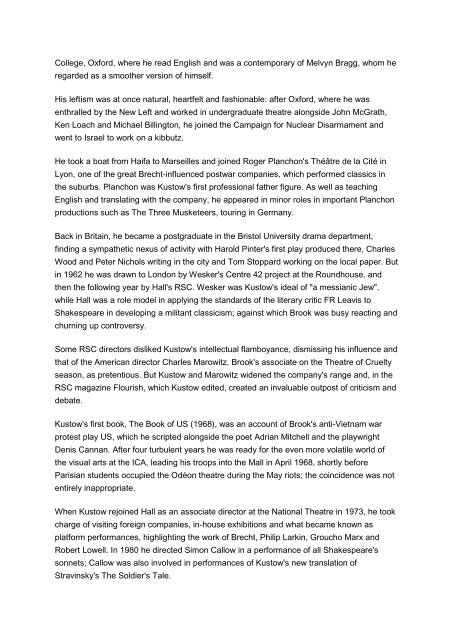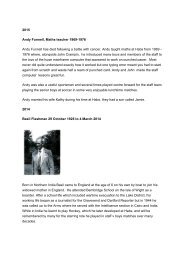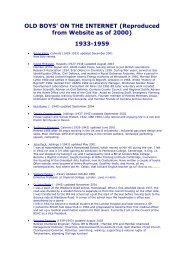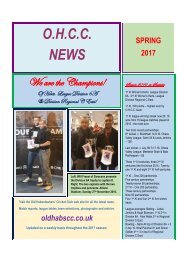Obituaries
Create successful ePaper yourself
Turn your PDF publications into a flip-book with our unique Google optimized e-Paper software.
College, Oxford, where he read English and was a contemporary of Melvyn Bragg, whom he<br />
regarded as a smoother version of himself.<br />
His leftism was at once natural, heartfelt and fashionable: after Oxford, where he was<br />
enthralled by the New Left and worked in undergraduate theatre alongside John McGrath,<br />
Ken Loach and Michael Billington, he joined the Campaign for Nuclear Disarmament and<br />
went to Israel to work on a kibbutz.<br />
He took a boat from Haifa to Marseilles and joined Roger Planchon's Théâtre de la Cité in<br />
Lyon, one of the great Brecht-influenced postwar companies, which performed classics in<br />
the suburbs. Planchon was Kustow's first professional father figure. As well as teaching<br />
English and translating with the company, he appeared in minor roles in important Planchon<br />
productions such as The Three Musketeers, touring in Germany.<br />
Back in Britain, he became a postgraduate in the Bristol University drama department,<br />
finding a sympathetic nexus of activity with Harold Pinter's first play produced there, Charles<br />
Wood and Peter Nichols writing in the city and Tom Stoppard working on the local paper. But<br />
in 1962 he was drawn to London by Wesker's Centre 42 project at the Roundhouse, and<br />
then the following year by Hall's RSC. Wesker was Kustow's ideal of "a messianic Jew",<br />
while Hall was a role model in applying the standards of the literary critic FR Leavis to<br />
Shakespeare in developing a militant classicism; against which Brook was busy reacting and<br />
churning up controversy.<br />
Some RSC directors disliked Kustow's intellectual flamboyance, dismissing his influence and<br />
that of the American director Charles Marowitz, Brook's associate on the Theatre of Cruelty<br />
season, as pretentious. But Kustow and Marowitz widened the company's range and, in the<br />
RSC magazine Flourish, which Kustow edited, created an invaluable outpost of criticism and<br />
debate.<br />
Kustow's first book, The Book of US (1968), was an account of Brook's anti-Vietnam war<br />
protest play US, which he scripted alongside the poet Adrian Mitchell and the playwright<br />
Denis Cannan. After four turbulent years he was ready for the even more volatile world of<br />
the visual arts at the ICA, leading his troops into the Mall in April 1968, shortly before<br />
Parisian students occupied the Odéon theatre during the May riots; the coincidence was not<br />
entirely inappropriate.<br />
When Kustow rejoined Hall as an associate director at the National Theatre in 1973, he took<br />
charge of visiting foreign companies, in-house exhibitions and what became known as<br />
platform performances, highlighting the work of Brecht, Philip Larkin, Groucho Marx and<br />
Robert Lowell. In 1980 he directed Simon Callow in a performance of all Shakespeare's<br />
sonnets; Callow was also involved in performances of Kustow's new translation of<br />
Stravinsky's The Soldier's Tale.





